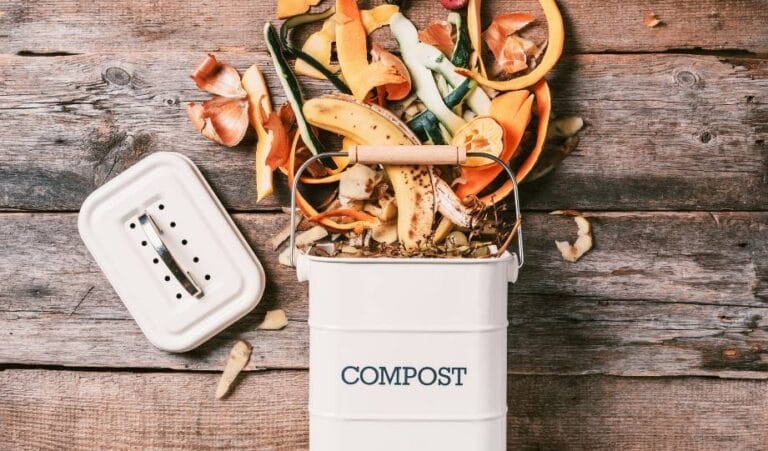Many of our regular readers know how much we try to get people to live a zero-waste lifestyle. For most people, this will involve reducing waste and recycling as many materials as possible.
And one of the best ways to get you closer to becoming a zero-waste household is through composting.
But people who live in apartments don’t have the same flexibility as those with a back yard.
Fortunately, there are some great solutions that make composting in an apartment possible without attracting complaints from neighbors.
However, there are a few things you need to be aware of before you get started.
Ways To Compost In An Apartment
I’ve researched and tested several methods and devices that make composting in apartments quite easy.
Here are some that you might want to consider.
Worm Bin
Worm composters are possibly the most effective way to deal with food waste.
Now, I know what you’re thinking.
There’s no way you’re going to keep worms in your home only to end up with them wriggling all over the place.
But that’s exactly what a worm bin is designed to prevent. They are sealed tight, and the worms will be much happier inside the containers than outside.
You can get any ready-made worm composting bins and get started. I used one from Outsunny.
This worm composter came with everything I needed to get started, including a really helpful guide on how to get set up and what kind of waste to add.
All I needed was a supply of worms. I got my red wrigglers from Uncle Jim’s Worm Farm.
The one thing I was worried about when I got started was the smell. But the sealed container seemed to work really well as the smell of my apartment compost was completely unnoticeable.
One thing I would say is, if you have a balcony and live somewhere that regularly gets freezing temperatures, then don’t keep this one outside. Unless you want your new wriggly pets to quickly end up in pet heaven.
Here’s a video that shows how you can set up your worm bin:
Compost Tumbler
One of the problems with a standard compost bin is that it can be difficult to rotate the compost to aerate it and achieve a more consistent finished compost.
That’s a problem that a compost tumbler can solve very easily, but I do have to give a word of caution.
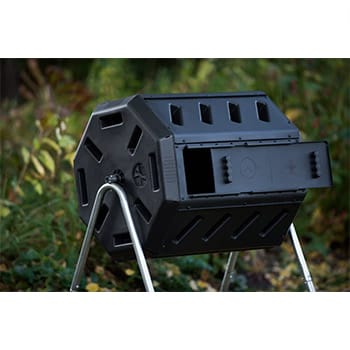
I wouldn’t recommend keeping one of these indoors as they are not sealed airtight. Also, the small holes could cause some of the waste materials to drip out, which wouldn’t be ideal.
But if you have a balcony where you can stand it in a corner, then it’s the perfect solution.
The one I tried out is from FCMP. It’s large enough for a small household, and you can easily access the compost once it’s finished.
Here’s how you can set up your tumbling composter:
Bokashi
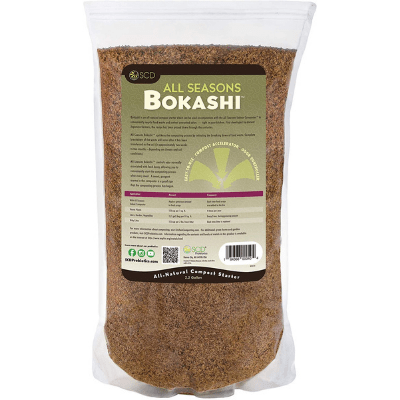
You’ll need the Bokashi Composting Starter Kit to easily get into this method.
The first advantage is that the bins that you put the food scraps into are sealed tight, so there is no smell.
Smells from fermentation could actually be a lot worse than just regular worm composters, and not something you want lingering in your home.
Secondly, a Bokashi bin will allow you to add dairy products and meat, as the microbes are not picky about that kind of stuff.
I’ve also found that this is a good option for anyone that just can’t get their mind around keeping worms in their home.
What I would say, though, is that this method of composting doesn’t produce finished compost.
But the material is ready to use in window boxes; you’d just need quite a few of them or some other options for gardening.
More on that shortly.
In the meantime, here’s a video that shows you how you can start composting using the bokashi method:
Electronic Composting
If you’re a bit of a technology nerd like me, then an electronic composter like this one from Food Cycle Science might just be the right solution for you.
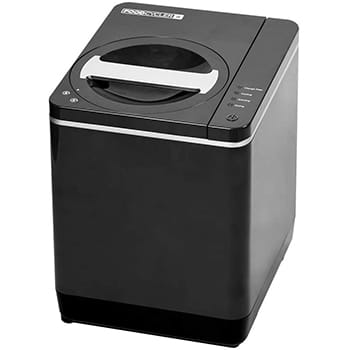
These devices are about the size of a bread maker or food processor, so you won’t need a huge amount of space. It’s also completely odorless, so you won’t have to worry about bad smells rising.
And it also solves an important problem.
Normally, full composting can take many months, which means you have to find ways to store your waste in multiple containers.
You could then end up with lots of compost when you don’t have a huge need for it.
These electronic devices use heat and mulching to break all the food down into a dark fertilizer.
The process is faster, and you have a bit more control.
It’s a great way to compost for apartment dwellers.
If you have ever rejected composting because of a lack of outdoor space, think again. Today’s composters are streamlined and odor-free, offering options to accommodate even the smallest of apartments.
— Shannon Cowan, Content Editor at EarthEasy.com
Citywide Service Or Private Collection Service
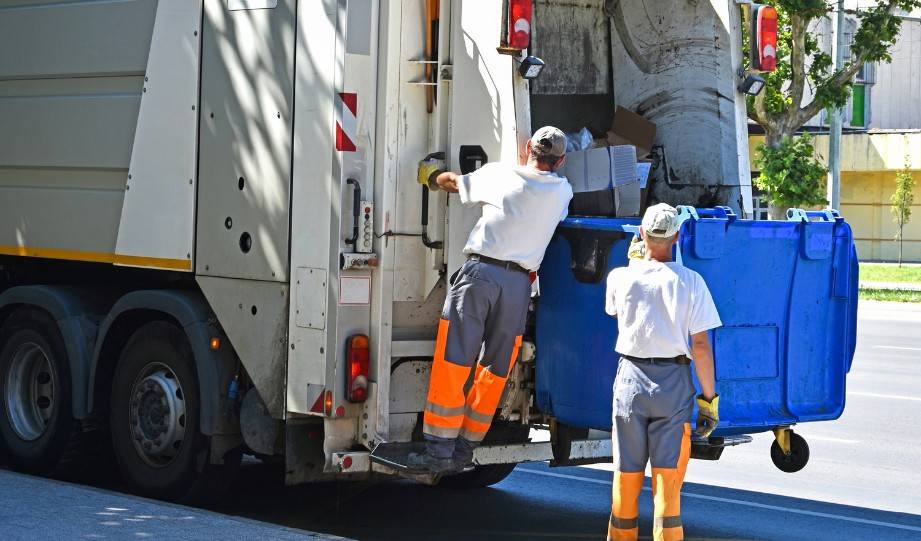
Some cities like NY, San Francisco, and Seattle have started operating drop-off and collection services for food waste.
The NY City government and councils estimate that a third of all waste being generated is related to food and yard waste.
And they have taken the initiative to offer better ways to deal with composting apartment waste.
There are numerous convenient drop-off points, and the city then processes the waste into compost for use in parks, as well as renewable energy sources.
You can check if your city offers similar services.
There are also private waste management companies that now offer a separate bin to collect certain types of waste for composting. Simply collect all your scraps like apple cores, eggshells, vegetable peelings, and most uncooked organic matter, and it’s collected with all the rest of your trash.
Farmers’ Markets

You might need to go to a few different ones and ask the sellers. But I have seen an increasing number of food growers actively asking their customers to bring food scraps.
And it makes perfect sense.
These growers are heavily reliant on fertile soil to grow their produce. That means either buying fertilizer or trying to source more compost.
Let’s say you grow a mix of vegetables throughout the year. Wouldn’t it make sense to collect as much vegetable matter as possible to make your own compost?
And the more food scraps you can get your hands on, the more composting will be possible.
Now, this does require some logistics for these farmers, but it’s definitely worth asking on your next visit to one of these markets.
Community Garden
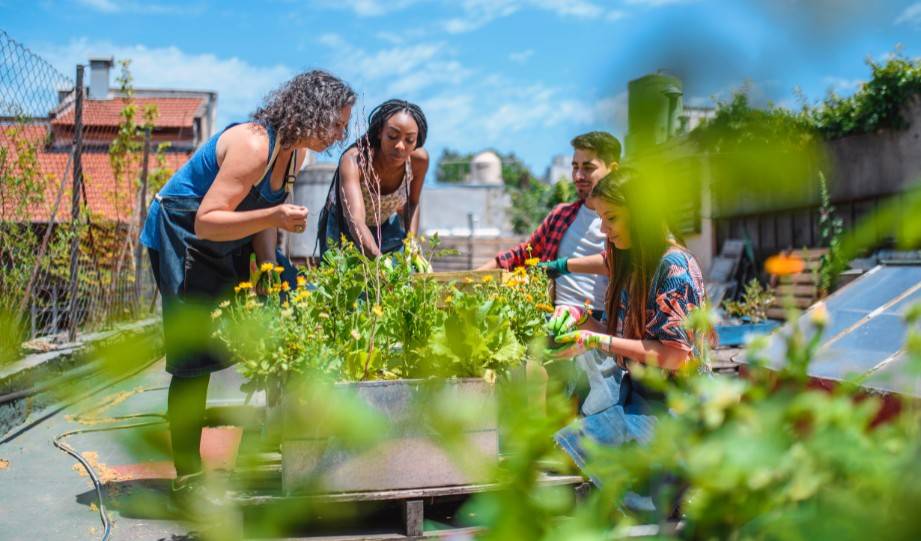
There are two ways you can explore this approach.
The first is through communal rooftop gardens. Many apartment blocks have started creating these shared spaces that would allow you to join your neighbors in growing flowers and even food.
It’s a fantastic way to bring a bit of nature into the urban jungle, but it is also an excellent way to get larger groups of people involved in composting their food scraps.
And to be honest, I think this is possibly one of the best ways to make a big difference in reducing the amount of food that ends up in landfill sites.
If this is not something available in your building, then reach out to your neighborhood to find out if there are some community gardens.
These are sometimes run by local councils, but private citizens have also been getting together to create these shared spaces.
And they will all be more than happy with a steady supply for their composting needs.
Frequently Asked Questions (FAQ)
Yes, you can compost in your apartment. It may take a slightly different approach using sealed containers, but it’s entirely possible without any mess or bad smells rising. Even the use of worms is possible with specialized indoor composters.
Yes, you can compost on your balcony. You might want to avoid the standard compost bins and get something that is easier to manage like a composting tumbler. These are much easier to add scraps and remove the final compost material.
You compost in an apartment by using either an electronic composter or Bokashi. The Bokashi has become the favored option as it uses a fermentation process rather than worms. The scraps are broken down by microbes, which become powerful fertilizer.
You don’t always need worms to compost food waste. If you don’t fancy the idea of keeping a worm composter indoors then there are fermentation methods that might be more suitable for you.
If you don’t garden, then you could use your compost to plant flowers in window boxes or indoor pots. Alternatively, you could give it to a community gardening project that would be more than willing to accept it.
The most common reasons there are no worms in your compost is due to the temperature and moisture. If your compost regularly gets too cold or hot, then it could kill the worms. Too dry or wet conditions could also cause problems.
It usually takes about 4 to 6 months for kitchen scraps to compost. This depends on the kind of food scraps you mix in and the time of year as well. Rotating the compost material is also important in determining how fast it will decompose.
Final Thoughts
If there’s one thing you take away from this post, then it should be that there are several methods available to make indoor composting possible.
I myself have significantly reduced how much of my food ends up in the trash because of these methods. And I have more than enough compost to use throughout the year that I share with my friends and family.
